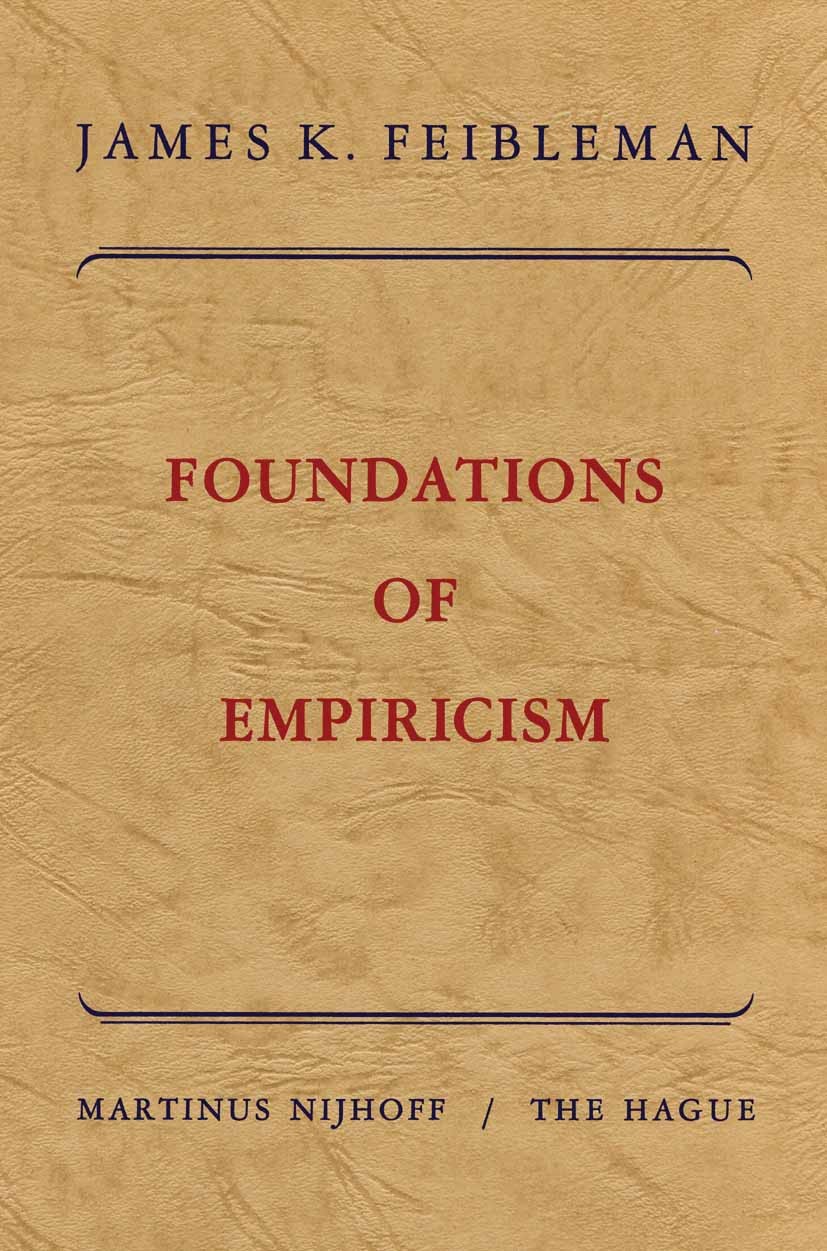| 书目名称 | Foundations of empiricism | | 编辑 | James K. Feibleman | | 视频video | http://file.papertrans.cn/347/346958/346958.mp4 | | 图书封面 |  | | 描述 | For some centuries now the western world has endeavored to choose between rationalism and empiricism; or, when a choice was found impossible, somehow to reconcile them. But the particular brands of both which were taken for granted in confronting the problem were sUbjective: individual human reasoning stood for rationalism and private sense experience for empiricism. Since Plato it has been known that reasoning and feeling are often in conflict. No wonder that a standard for deciding between them or for harmonizing the two was found difficult to come by. Fortunately, due to the revival of realism, a way out presented itself, and we could now consider rationalism and empiricism on some kind of objective basis. In other words, rationalism is a theory about something outside us, and reasoning involves the utilization of a logic which in no wise depends upon our knowledge of it. Similarly; sense experience reveals the existence of data which can be reached through the senses but which in no way relies upon experience for its existence. Thus both reasoning and sensing bring us fragmentary news about an external world which contains not only logic and value but also the prospects for the | | 出版日期 | Book 19621st edition | | 关键词 | Aristotle; Immanuel Kant; metaphysics; ontology; probability; proposition | | 版次 | 1 | | doi | https://doi.org/10.1007/978-94-011-9088-6 | | isbn_ebook | 978-94-011-9088-6 | | copyright | Springer Science + Business Media B.V. 1962 |
The information of publication is updating

|
|
 |Archiver|手机版|小黑屋|
派博传思国际
( 京公网安备110108008328)
GMT+8, 2026-2-9 19:23
|Archiver|手机版|小黑屋|
派博传思国际
( 京公网安备110108008328)
GMT+8, 2026-2-9 19:23


